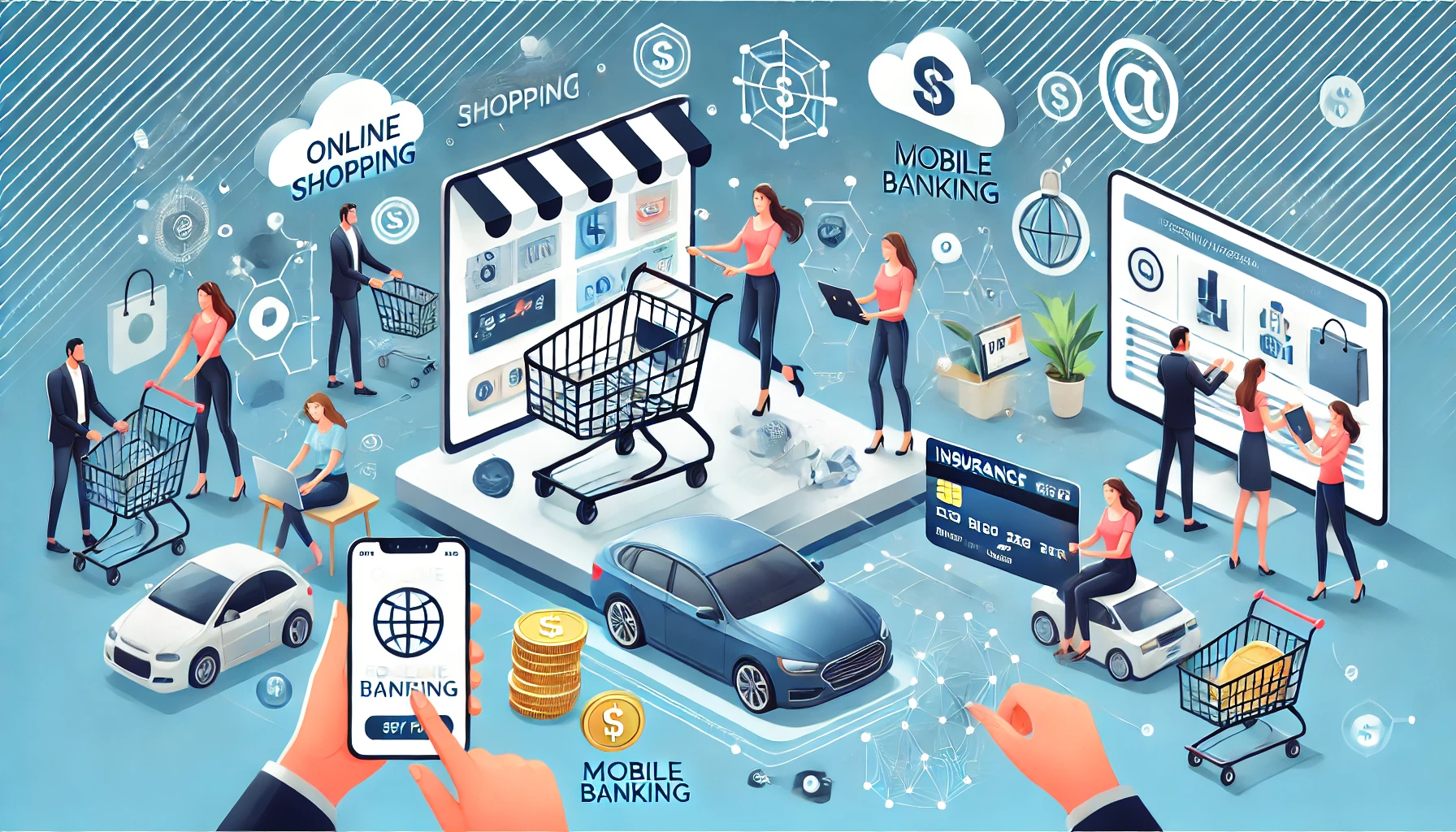The financial services sector is at a pivotal point. Disruption across the industry from the rise of fintech, the effects of the pandemic, increased regulation and acceleration in digital innovation spurred by changing customer behaviors means that banks and traditional players are carefully assessing their business models and concluding that solutions-focused reinvention and agility are key. Inevitably, technology is at the core of this. To compete in a crowded marketplace, digital transformation is vital. In this radically changing environment, embracing innovation at pace and scale is crucial to thrive. Our blogpost today will dive further into the crucial role this approach plays in IT product success, discussing how integrating a human-focused perspective in technology is essential for advancement.


The Need for Digital Transformation in Banking and Financial Services
Changing consumer behaviors and preferences:
Consumer Behaviors has dramatically changed in the last 5-10 years. Imagine the world of the 1990’s or early 2000’s, people considered it necessary to go to the bank and transact physically. They considered it necessary to stand in long queues to complete the financial transactions.
Recent internet penetration also has improved consumers’ access to digital services, banking, and Fintech. With the recent digital revolution, and high penetration of data consumer’s expectations have dramatically changed with the evolution of technology. It’s no longer necessary to visit a bank to open your bank account, you can complete your KYC online through phone. Similarly, all your financial transactions, bill payments, fund transfers, Deposit opening, buying an insurance policy, and investing, can all be done by using a phone in a matter of a few mins.
The Digital Transformation strategy also helps the Fintech and banks for optimize the costs and spend at the right place.


Key Components of Digital Transformation in Banking
Let’s discuss some of the key components of Customer Experience and Digital Transformation in Banking and Fintech.
- Mobile banking and digital payments:
Today Majority of people use mobile phones as their first device to access the internet, bank, pay bills, and transfer money. Mobile banking and digital payments post Covid 19 have seen exponential growth because of the “touchless” economy.
92.3% of internet users access the internet using a mobile phone.
For Any Banking and Financial institution, it has become a norm to offer the simplest mode of digital payments and money transfer. Last few years, we have seen the evolution of several modes of Digital payments, one of the most prominent standards which is growing exponentially UPI. UPI is heavily used in India and is now being adopted across many countries in southeast Asia.
The Mobile phone has become the first device to connect to the internet and communicate. With this paradigm shift all of the banks and Fintech need to think of mobile for banking, and any financial transactions through Apps. It should be frictionless with simple onboarding and signup processes.
- Data Analytics and Artificial Intelligence:
Today the amount of customer data is huge, it starts with user engagement, interactions, user profiles, personal entered information, PII, preferences, etc. This data is huge, it needs a focused approach and efforts to curate this data for making it usable. e.g. when a user is performing KYC with the help of selfie, an AI algorithm helps to match the face on the documents (ID’s) to the selfie and confirm.
An automated underwriting system for lenders aggregates the transactions from the banks of the customers, enriches them, identifies the income sources and transactions, understands the spending patterns, and underwrites the user, without any manual intervention in minutes.
Insurance companies use AI for fraud detection and claim settlement.
Benefits of Fintech as a Service Platform
The fintech sector constantly adjusts and adapts to meet investor, customer, and regulator needs. Fintech is also increasingly recognizing the profound effect of new-age technologies on generating new revenue, delivering process efficiency, enhancing the end-user experience, and reducing risk in business.
- Customer Services and Revenue:
Fintech offers greater convenience, speed, and reduced costs, ultimately enhancing the end-user experience and leading to increased revenues. - Reduced Costs:
By leveraging new-edge technologies, fintech companies can achieve efficiency and cost savings, contrary to the perception that it may involve high expenses. - Secure, Personalized, and User-Friendly Financial Service:
Fintech provides secure and personalized financial services, improving convenience, speed, and access to financial products for consumers and businesses. - Financial Inclusion:
Fintech plays a significant role in increasing financial inclusion, providing easier access to financial activities and services, ultimately contributing to the welfare and economy of the society. - Unified Tech Stacks:
Fintech-as-a-Service unifies all payment, financial management, and money movement services that modern enterprises require into a single and scalable worldwide API. Solutions architects are free to take a user-centric perspective of their design efforts when they have a single centralized tech stack. This allows your organization to prioritize customer experience while reducing the need to invest in backend infrastructure. The next stage uses FaaS to remove the roadblocks to global expansion.
SmartDev: Partnering for Digital Transformation in Banking and Financial Services!
SmartDev, as a leading IT outsourcing company, offers strategic solutions to overcome key challenges in the realm of Digital Transformation in Banking and Financial Services.
Let’s explore our successful Case Study!
BigPay – AirAsia
BigPay is a NeoBank owned and operated by AirAsia. They have over 3.3 million users in South East Asian and are ranked as the most searched digital bank in Malaysia in 2021 by Google Reports. They allow for bill payments, international bank transfers, international remittances, peer to peer payments and other modern features such as split the bill.
The Challenge
The Southeast Asian region has shifted gradually towards cashless payments systems. BigPay wanted to position itself as a leading player in this market. It approached SmartDev, looking to hire a team of experts to help CEO Tony Fernandes realise his goal of making BigPay larger than AirAsia.
SmartDev’s support for BigPay – Air Asia
- Zero free money transfer
- Globally accepted payment
- All your Banking activity in one app
Conclusion
The digital transformation in the banking and financial services industry is a significant shift that goes beyond just updating technology. It involves reimagining how banking is done, creating a more customer-centric approach, and leveraging new technologies to improve efficiency, security, and convenience. This transformation is driven by the increasing demand for personalized and seamless customer experiences, the need to stay competitive in a rapidly changing digital world, and the potential for higher profits and business growth. By embracing digital transformation, banks can modernize their infrastructure, streamline operations, reduce costs, and drive new business innovations, ultimately positioning themselves to succeed in the digital age.



